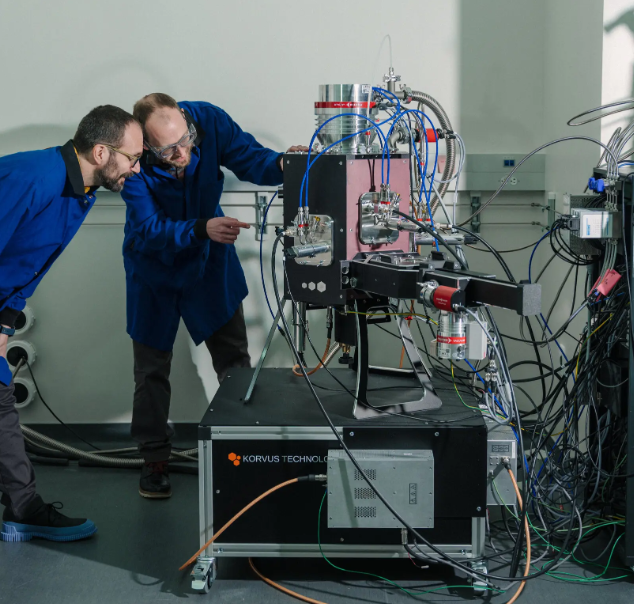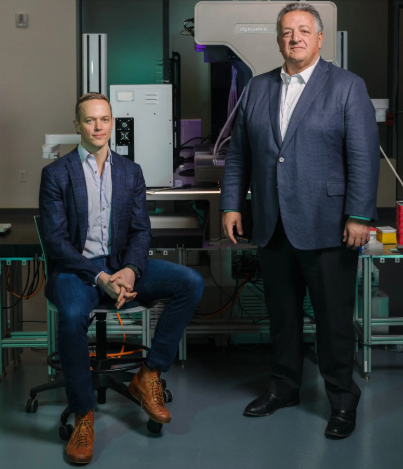


How Artificial Intelligence is Revolutionizing Scientific Discovery
In the ever-evolving landscape of artificial intelligence (AI), one breakthrough stands out: the potential to revolutionize scientific discovery. AI-driven research is set to transform industries by accelerating drug development, optimizing materials science, and tackling global challenges like climate change and food security. With vast datasets fueling AI models, experts believe we are on the verge of a new scientific renaissance.
AI and the Future of Scientific Breakthroughs
Tech giants like Microsoft and Google have already ventured into AI-driven science, collaborating with pharmaceutical companies and research institutions. The recent Nobel Prize in Chemistry awarded to researchers leveraging AI to design proteins is a testament to this growing trend. Now, a promising new player has entered the scene: Lila Sciences.
Meet Lila Sciences: The Startup Pioneering AI-Driven Discovery
After two years of stealth development, Lila Sciences, a Cambridge-based startup, has emerged with bold ambitions: to build a “scientific superintelligence” capable of solving humanity’s greatest challenges. Armed with a team of top-tier scientists and an initial $200 million in funding, Lila aims to redefine scientific discovery by integrating AI with automated physical laboratories.
Unlike traditional research methods, which can take years, Lila’s AI can generate novel scientific hypotheses, run experiments, and produce tangible results in months. So far, its AI has successfully developed groundbreaking antibodies for disease treatment and innovative materials for carbon capture.
The AI-Powered Research Revolution
Lila’s approach builds on the capabilities of generative AI—similar to OpenAI’s ChatGPT but trained on specialized scientific data. By analyzing published research, experimental results, and complex reasoning patterns, Lila’s AI functions as an advanced scientific assistant, capable of generating innovative solutions across multiple disciplines.
“This is the next evolution of the scientific method,” says Geoffrey von Maltzahn, Lila’s CEO and a biomedical engineering Ph.D. from MIT. “AI will drive a revolution in how we approach discovery and experimentation.”
Challenges on the Road to Scientific Superintelligence
Despite its promise, AI-driven research faces significant hurdles. While AI has already demonstrated success in areas like drug discovery, the broader question remains: Can AI truly match or surpass human ingenuity in scientific exploration?
Lila’s secrecy has also raised skepticism. Independent scientists have yet to validate its findings, and early breakthroughs in AI research do not always guarantee long-term success. David Baker, a Nobel Prize-winning biochemist, acknowledges AI’s potential but remains cautious: “It’s an impressive tool, but it’s too soon to tell if it can fully replace human intuition in scientific discovery.”
A Legacy of Innovation: The Flagship Pioneering Connection
Lila Sciences was born out of Flagship Pioneering, the biotech incubator behind Moderna’s COVID-19 vaccine. Flagship’s strategy involves identifying scientific breakthroughs poised for commercialization, making Lila a natural extension of its portfolio.
The startup emerged from the fusion of two AI projects—one focused on materials science and the other on biology—allowing researchers from different disciplines to collaborate seamlessly. Co-founder Molly Gibson, a computational biologist, explains, “By combining these fields, we created an AI that thinks holistically, much like a scientist would.”
Real-World Applications: AI’s Success in Scientific Research
To showcase its capabilities, Lila has completed five projects using AI as an intelligent research assistant. In one notable experiment, AI was tasked with discovering a new catalyst for green hydrogen production—an essential component of clean energy.
The AI identified a novel catalyst in just four months, dramatically reducing the years-long process typically required. This breakthrough persuaded leading scientist John Gregoire to leave Caltech and join Lila as head of physical sciences research. Similarly, Harvard geneticist George Church, known for his pioneering work in genomics, recently came on board as Lila’s chief scientist.
The Future of AI-Driven Scientific Innovation
The rise of AI-powered research marks a pivotal shift in how humanity approaches discovery and innovation. If successful, Lila Sciences could redefine scientific progress, making breakthroughs faster and more accessible than ever before.
While challenges remain, the fusion of AI and scientific expertise promises to unlock new frontiers in medicine, energy, and beyond. Whether AI will ultimately surpass human researchers is yet to be seen, but one thing is clear: the scientific revolution has begun, and AI is leading the way.





